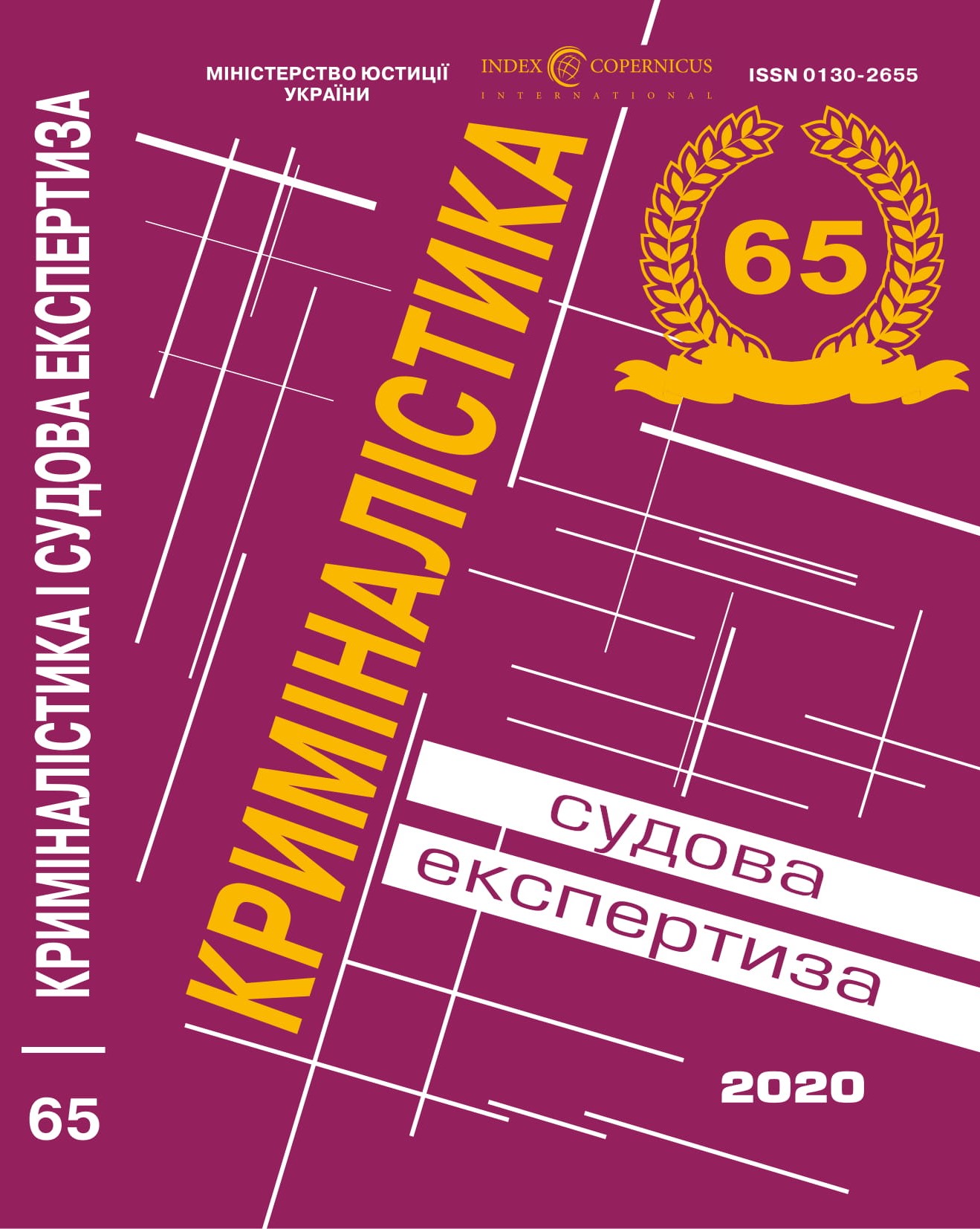
DOI: https://doi.org/10.33994/kndise.2020.65.18
E. Lukianchykov, B. Lukianchykov, S. Petriaev
The investigation of crimes, as an informational-cognitive process, takes place in the face of active opposition from persons who take all measures to evade responsibility. The humanization processes in the field of criminal justice did not have a positive impact on the state of crime and the improvement of the work of law enforcement agencies in the disclosure and investigation of crimes. The crime detection rate in 2019 was 43.2 %. Despite the significant expansion of the tools of cognitive activity for solving crimes, in connection with the adoption of the new Criminal Procedure Code of Ukraine in 2012, a number of problems remain unresolved for scientists and practitioners. Foremost, this is deals with new procedural institutes, one of which is the institute of covert investigative (search) actions, which requires further scientific research, which determines the relevance of this article.
The problem of covert investigative (search) actions (in some countries they are called special) attracts the attention of scientists and practitioners who have created a reliable scientific foundation for further research. The most significant contribution to the development of investigative actions belongs to such domestic and foreign scientists as V. P. Bakhin, R. S. Belkin, V. I. Halahan, A. Ya. Dubynskyi, V. Ye. Konovalova, A. M. Larin , I. M. Luzhin, N. A. Pohoretskyi, S. A. Sheifer, V. Yu. Shepitko, etc. At the same time, a number of problematic issues require further research and resolution.
The purpose of the undertaken research is to establish the essence of covert investigative (search) actions, determine their list and place in the system of means of generating judicial evidence, the subjects of their conduct and execution of the results. The attention is focused on the duties of state bodies to protect citizens and the state from illegal encroachments. To do this, they must use the entire arsenal of tools and methods for obtaining and storing information. The Criminal Procedure Code of Ukraine in 2012 significantly expanded the tools of cognitive activity of the investigator by unspoken investigative (search) actions. It is proved that they are not a kind of operational-search measures, despite the fact that the production methods of the first and second use the same methods and techniques for working with regulated by independent laws, and are carried out in the form prescribed by law.
The authors consider the points of view on the list of covert investigative actions, the order and subjects of their conduct, the procedure for fixing their process and results, as well as the use of the information obtained in the process of proving.
The conclusions propose the definition of covert investigative (search) actions substantiates the expediency of fixing the list of such actions in the corresponding article of the Code of Criminal Procedure of Ukraine, substantiates the feasibility of delimiting the competence of investigators and detectives.
Key words: investigative actions, covert investigative (search) actions, investigation, criminal proceedings, investigator, operational units, prosecutor, procedural controller, information.










